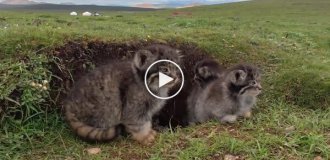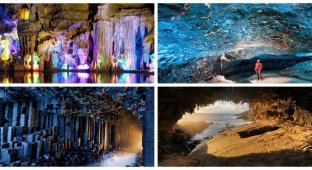Cave Elephants: For Thousands of Years, These Giants Have Been Descending into Ancient Caves for a Special Purpose (8 photos)
On the border of Uganda and Kenya there is a place that is very hard to believe exists. Imagine: in the middle of the savannah there is a mountain. Inside the mountain there are caves. And inside the caves there are elephants! This is where you would never expect to see an African giant! Two logical questions arise: how do elephants fit into narrow passages, and what are they doing there? 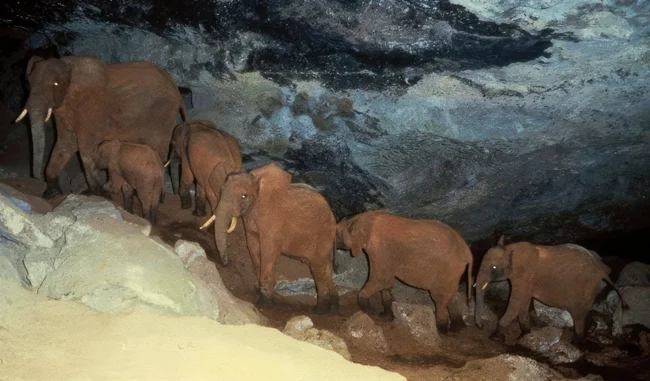
An elephant in a china shop is a phraseological unit. Elephants in a narrow cave are a reality!
In fact, Elgon is not an ordinary mountain, but an extinct volcano that fell asleep forever about 24 million years ago. Today, its structure reminds us of its once fiery nature and numerous eruptions. Geologists note layers of various volcanic rocks rich in minerals, especially salt. Yes, the most common one that we add to soup. Salt is the main reason why elephants are so attracted to caves. 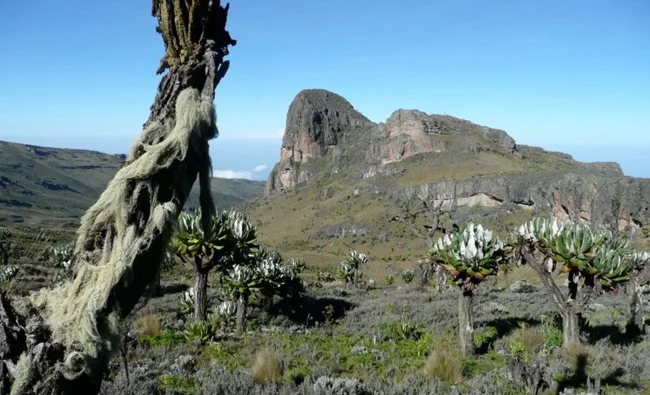
This is what Mount Elgon looks like from the outside. The diameter of the volcanic shield is more than 80 km! And the mountain itself is considered the fourth highest in Africa.
Salt in the body of living beings performs many vital functions. Sodium and chlorine ions are on the membrane of every cell in the body. They are like strict guards-extras, they do not let the necessary out of the cell and do not let the unnecessary in. NaCl is also indirectly responsible for the transport of various nutrients, digestion, respiration, transmission of nerve impulses and much more, without which it is impossible to survive a day. Adult elephants, for a minute, need at least 160 grams of salt per day. For comparison, a person needs only 5 grams. 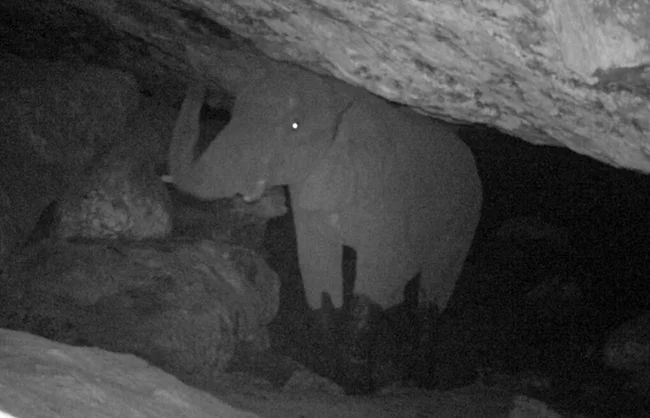
Walks in questionable places. Picks around everywhere to find salt... Who is this? That's right, an elephant!
But while each of us has a salt shaker on the dinner table with free access, animals have a hard time. Predators get most of the salt they need from blood, meat and bones. But plants have little NaCl, so all herbivores are in a permanent search for an alternative source of obtaining it. Often in nature there are "salt licks" - clearings where for one reason or another the soil is saturated with salt and its crystals protrude directly on the surface. Animals happily lick the salt from the ground, which causes even more of the mineral to protrude. 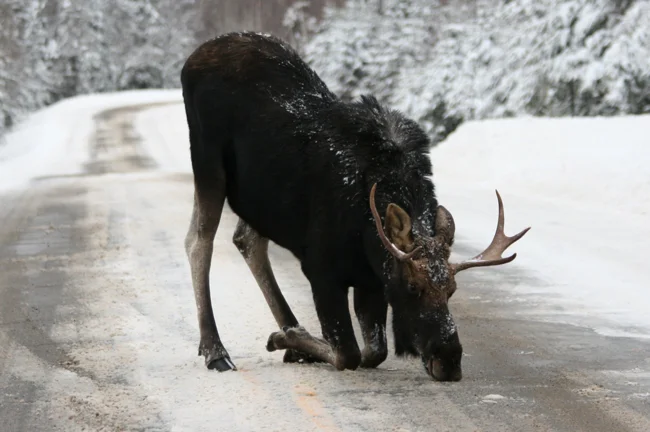
Some animals specifically go out onto the road to lick the salt that is used to treat the asphalt to eliminate icing.
But there are no salt licks in the vicinity of Elgon, although there are plenty of minerals there. Powerful rains wash out of the rock everything that the volcano has accumulated in itself for millions of years. But this does not stop the elephants. The giants have long understood that volcanic slopes are a storehouse of useful microelements. And since water wears away stone, you need to dig this very stone yourself! 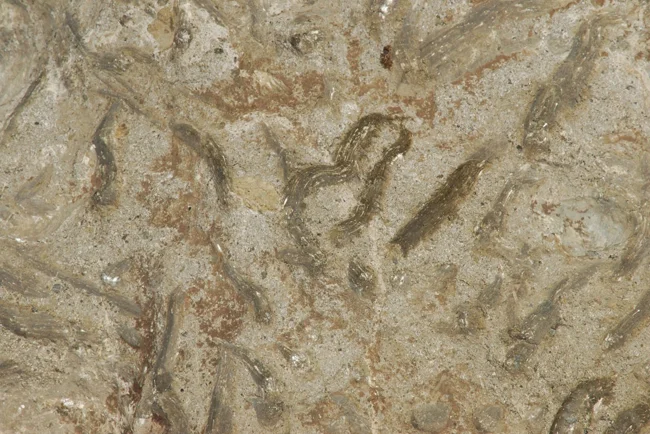
These rock paintings are the imprints of the tusks of thousands of elephants!
Scientists assume that this is how the caves in the mountain were formed: for 12,000 years, hundreds of thousands of elephants used their powerful tusks to carve out depressions in the mountain, which over time turned into salt mines. Elephants cannot lick salt — their anatomy does not allow it. Instead, they brutally chew volcanic pebbles. At one time, a giant can “process” up to 20 kilograms of rocks! 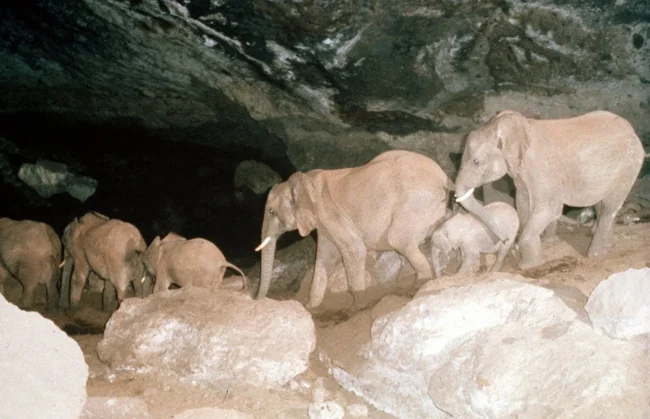
People: gather together to grill kebabs. Elephants: gather together to crunch on stones.
Today, five elephant caves are known, studied, and open to visitors in the mountain. All of them are high and wide enough to accommodate an entire herd. The largest, the Makengeni cave, is about 250 meters long and serves not only proboscideans, but also a bunch of other animals that need to replenish their salt reserves in the body. 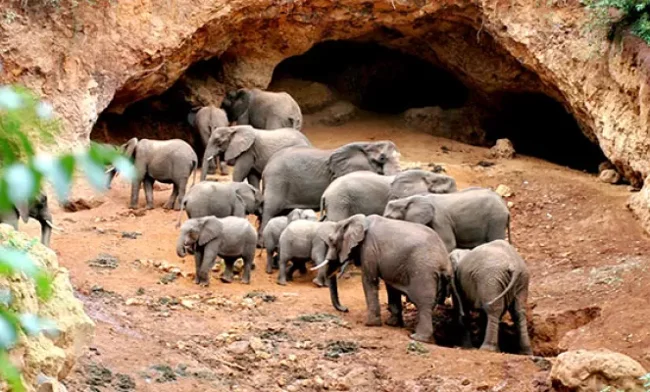
The entrance to the cave looks like this. Imagine how huge it is, if even elephants fit in there!
It's sad that elephants' passion for salt became their undoing. Previously, these unique caves were a meeting place for thousands of proboscideans from all over the area, who came to the mountain to get rich in minerals and find a mate. And after these lands were developed, poachers began to set ambushes and traps at the entrance to the caves - too vulnerable a place. Elephants are not cats. They cannot see in the dark, which means they have to navigate blindly. Thus, on the Ugandan side of Elgon, elephants have become completely extinct, while on the Kenyan side, there are only a little over 300 of them left. 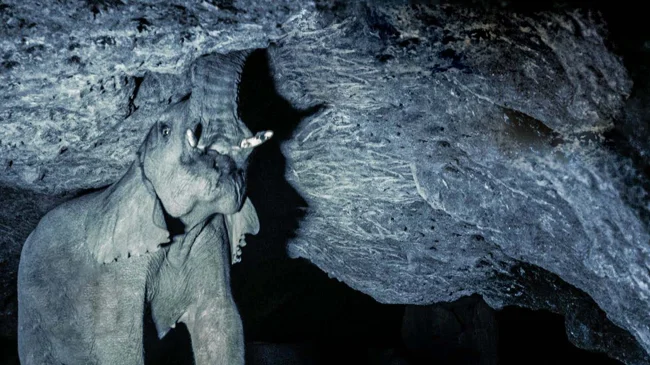
The pain of hitting your little finger on a corner in the dark is familiar not only to us, but also to elephants!
Elephants are also a nuisance to local residents: the giants constantly enter crops and destroy everything. But there is hope: part of Elgon has already been included in the list of specially protected areas, and scientists are already working on special projects to protect another part.





